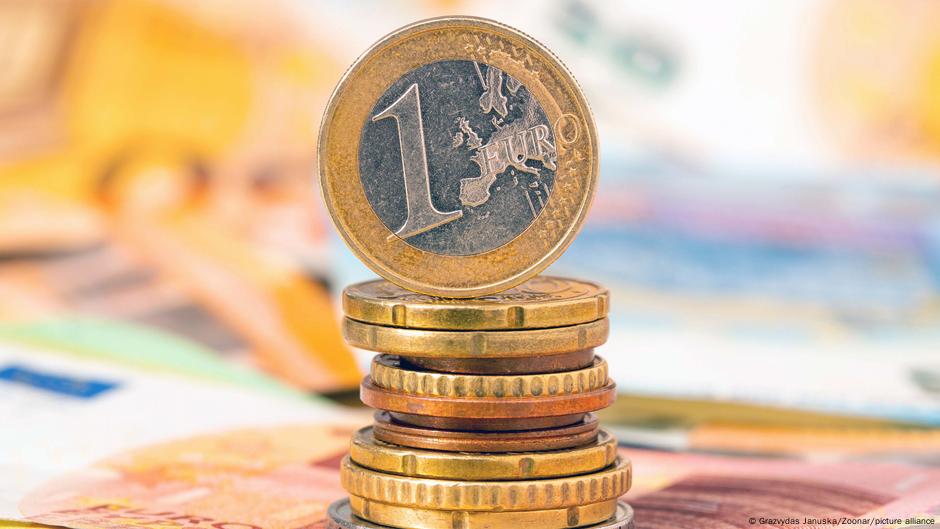Bulgaria is nearing the final stages of joining the eurozone, which comprises 20 EU member states. The ruling coalition in Bulgaria has emphasized that adopting the euro is a significant goal, with aspirations to implement it by the start of 2026.
At the same time, there has been a strong pushback against this initiative from pro-Russian parties and pro-Kremlin representatives, who have been campaigning vigorously, often with aggressive tactics.
In late February, members and supporters of the pro-Russian party Vazrazhdane defaced the European Commission’s building in Sofia, Bulgaria’s capital.
The approaching possibility of Bulgaria’s entry into the eurozone has led to an increase in disinformation. Various narratives are spreading across social media platforms. DW Fact Check and DW Bulgaria have analyzed several widespread claims.
Will the European Commission ‘steal’ people’s money?
Claim: Rada Laykova, a member of the European Parliament from Vazrazhdane, claimed in a TikTok video that citizens would face a deadline to spend their money, after which “the European Commission will steal it” from them.
DW Fact Check: This claim is false. Laykova has suggested in another interview that savings and pension funds might be diverted to military projects. However, European citizens’ savings are protected by law, and the EU cannot arbitrarily confiscate private savings. Simply put, savings accounts up to €100,000 are safeguarded in case of a bank failure, and individuals maintain the freedom to manage their money as they wish.
Concerns about the digital euro
Furthermore, Laykova posits that discussions about a digital euro are linked to potential confiscation of personal savings. The digital euro is positioned as a cash equivalent that would provide consumers with additional payment options. However, there are fears in Bulgaria that it could undermine financial freedom. Laykova contends that if Bulgaria transitions to the euro, it would automatically adopt the digital euro, which she characterizes as a means of controlling when and how individuals can spend their money.
Exchange rate misconceptions
Claim: Kostadin Kostadinov, leader of Vazrazhdane, claimed that if Bulgaria joins the eurozone, it would result in citizens losing a significant portion of their savings due to unfavorable exchange rates.
DW Fact Check: This assertion is also false. The exchange rate between the Bulgarian lev and the euro is fixed, and Bulgaria has a law ensuring it will adopt the euro at the established rate of 1.95583 lev for 1 euro. This rate was set under a currency board arrangement to ensure currency stability, and the laws passed by the Bulgarian parliament affirm this fixed exchange rate will remain unchanged.
The impact of disinformation in Bulgaria
Many of these unfounded claims gain traction in Bulgaria due to low media literacy rates, with only 31% of the population possessing basic digital skills, which is below the EU average. Ralitsa Kovacheva, a disinformation researcher, notes that such narratives are exploited to instill fear in the populace, with broader anti-EU sentiments fueled by pro-Russian influences in society. This disinformation campaign aims to instigate distrust towards anything associated with the EU and is particularly concerned with the introduction of the euro.



